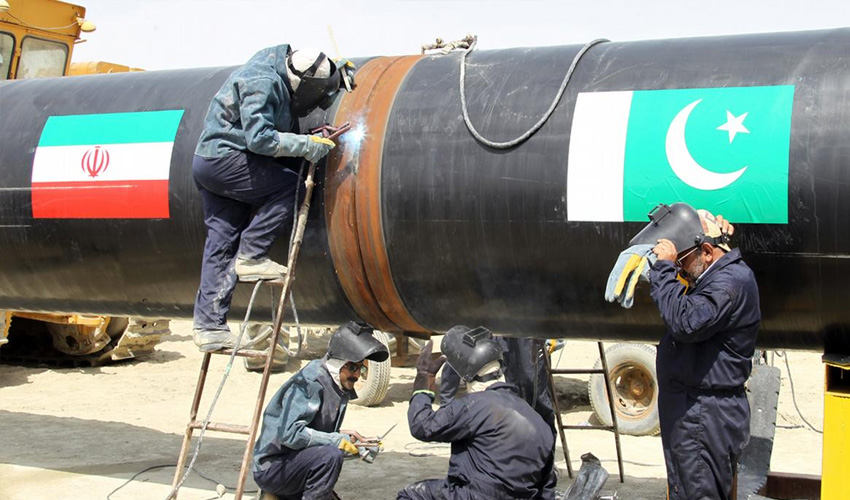The long-delayed Pak-Iran gas pipeline project is once again under scrutiny at the highest levels, as Iran has raised concerns with the Pakistan government over further delays and issued the country a final notice.
According to sources, Iran has expressed serious concerns to Pakistan over the continued postponement of the project, warning that no additional time will be granted for its completion. They indicate that Iran may escalate the issue by approaching the International Court of Arbitration in September for not building the pipeline under the project during the extended 180-day deadline.
In response to the potential legal action, Pakistan is reportedly considering options to negotiate a resolution with Iran regarding the gas pipeline through talks. Sources suggest that Pakistan intends to take Iran into confidence concerning the project's delays and future developments to avoid further complications.
The Pakistan-Iran gas pipeline project has faced delays since 2014, with various obstacles hindering its progress. Officials from the Petroleum Division have acknowledged the existence of a revised agreement on the project, but the repeated delays have put Pakistan at risk of legal action by Iran, which could result in heavy financial penalties.
To address the issue, the Petroleum Division is reportedly exploring the matter through discussions, focusing on the legal aspects to find a viable solution. The outcome of these discussions will be crucial in determining the future of the Pak-Iran gas pipeline and avoiding potential international arbitration.
The Pak-Iran gas pipeline project has faced a decade-long delay, primarily due to concerns over potential US sanctions. The Gas Sales Purchase Agreement (GSPA) was signed in 2009 under French law, designating the Paris-based Arbitration Court as the forum for dispute resolution. Notably, this court does not recognize US sanctions.
In September 2019, the Inter-State Gas Systems (ISGS) of Pakistan and the National Iranian Gas Company (NIGC) signed a revised contract. Under this agreement, Iran agreed not to approach any international court over delays in the pipeline's construction, with the stipulation that Pakistan would complete its portion of the pipeline by 2024, after which it would begin importing 750 million cubic feet of gas daily from Iran.
Pakistan was required to complete its section of the pipeline by February-March 2024. Although Iran granted a 180-day extension, this deadline is set to expire in September 2024. Despite the extension, Pakistani authorities have yet to fulfill their commitment, prompting Iran to issue a final notice.
Previously, Iran had issued a second legal notice to Pakistan in November-December 2022, warning that if Pakistan failed to construct its portion of the pipeline by the February-March 2024 deadline, it would face a penalty of $18 billion. In February 2019, Tehran had already notified Islamabad of its intent to seek arbitration and enforce the penalty clause of the GSPA, which was originally signed in 2009 for a 25-year term.
Top decision-makers in Pakistan's current government are reportedly distressed by Iran's final notice, which was received about 10 days ago. In response, officials from the Petroleum Division have been strategizing on how to address the situation. Pakistan is also in the process of hiring a foreign law firm to prepare its case for presentation before the Arbitration Court.


























